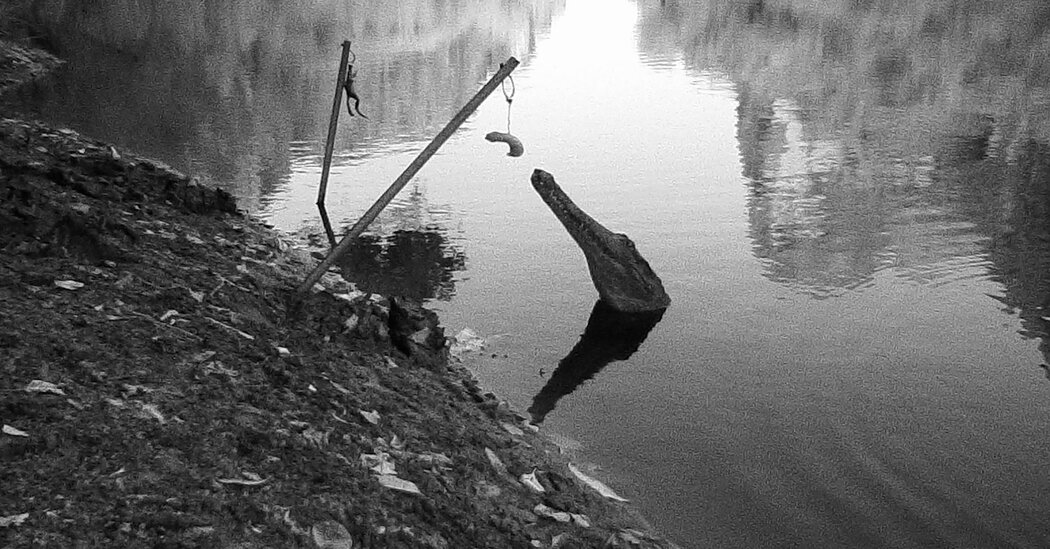The aquatic reptiles cannot resist eating invasive toads that are toxic, so scientists gave the crocodiles a dose of nonlethal food poisoning to adjust their behavior.
When Dr. Seuss compared the Grinch to the “tender sweetness of a seasick crocodile,” he may have been more right than he knew. When nauseous, these toothy reptiles don’t cough up whatever they just ate; instead, they’re largely lethargic and prefer to lay about instead of swimming after another meal.
Researchers in Australia believe being a bit nauseous could help save crocodiles from a poisonous pest. That’s why ecologists recently set traps baited with toad carcasses in gorges where freshwater crocodiles like to hunt. Instead of the deadly toxins the toads usually carry, these had been injected with a nauseating chemical. The results of the experiment, published Wednesday in the journal Proceedings of the Royal Society B, reveal that these tainted toads may save crocodile lives by changing their eating habits.
Cane toads were brought to Australia in 1935 to eat pests that feed on sugar cane crops. As with many foreign species in Australia, the toads quickly became pests themselves. Capable of growing as big as chihuahuas, they look like a tasty treat to native predators. But the amphibians secrete lethal toxins from glands near their heads when threatened.
Even top predators like freshwater crocodiles are susceptible to a deadly dose of toad. In some areas the toads have already reached, crocodile populations have plummeted by more than 70 percent.
According to Georgia Ward-Fear, a conservation ecologist at Macquarie University in Australia, eradication efforts have failed and cane toads “are here to stay.”
So Dr. Ward-Fear and her colleagues have taken a different approach to the toadpocalypse: training native wildlife to live alongside these invaders. To prevent predators from eating the toads, the team utilizes a strategy called conditioned taste aversion. Dr. Ward-Fear compares the tactic to a beneficial bout of food poisoning, reasoning that conservationists could “train animals not to eat cane toads if we gave them nonlethal experiences with cane toad baits.”
